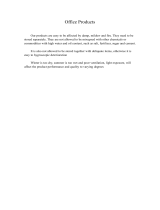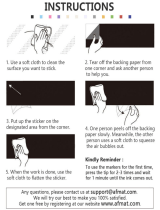• The refrigerator must be grounded.
- You must ground the refrigerator to prevent any power leakages or electric shocks
caused by current leakage from the refrigerator.
• Never use gas pipes, telephone lines or other potential lightening rods as ground.
- Improper use of the ground plug can result in electric shock.
• Do not dissemble or repair the refrigerator by yourself.
- You run risk of causing a fire, malfunction and/or personal injury.
• If you smell pharmaceutical or smoke, pull out power plug immediately and contact your
Samsung electronics service center.
• Keep ventilation opening in the appliance enclosure or mounting structure clear of obstruction.
• Do not use mechanical devices or any other means to accelerate the defrosting process, other
than those recommended by the manufacturer.
• Do not damage the refrigerant circuit.
• Do not place or use electrical appliance inside the refrigerator/freezer, unless they are of a type
recommended by the manufacturer.
• Before changing the interior light, unplug the appliance from the power supply.
• If you experience difficulty when changing the light, contact your service center.
• The appliance is not intended for use by children or infirm persons without supervision.
• Children should be supervised to ensure that they do not play with the appliance.
• Do not let children hang on the door. If not, a serious injury may occur.
• Do not touch the inside walls of the freezer or products stored in the freezer with wet hands.
- This may cause frostbite.
• If the refrigerator is not to be used for a long period of time, pull out the power plug.
- Deterioration in the insulation may cause fire.
• Do not store articles on the top of the appliance.
- When you open or close the door, the articles may fall and cause personal injury and/or material
damage.
CAUTION SIGNS
• This product is intended only for the storage of food in a domestic environment.
• Manufacturer’s recommended storage times should be adhered to.
Refer to relevant instructions
• Bottle should be stored tightly together so that they do not fall out.
• Do not place carbonated or fizzy drinks in the freezer compartment
• Do not overfill the refrigerator with food.
- When you open the door, an item may fall out and cause personal injury or material damage.
• Do not put bottles or glass containers in the freezer.
- When the contents freeze, the glass may break and cause personal injury.
• Do not spray inflammable gas near the refrigerator.
- There is a risk of explosion or fire.
• Do not directly spray water inside or outside the refrigerator.
- There is a risk of fire or electric shock.
• Do not store volatile or flammable substances in the refrigerator.
- The storage of benzene, thinner, alcohol, ether, LP gas and other such products may cause
explosions.
• If you have a long vacation planned, you must empty the refrigerator and turn it off.
• Do not re-freeze frozen foods that have thawed completely.
• Do not store pharmaceuticals products, scientific materials or temperature-sensitive products in
the refrigerator.
- Products that require strict temperature controls must not be stored in the refrigerator.
• Do not put a container filled with water on the refrigerator.
- If spilled, there is a risk of fire or electric shock.
CAUTION





















